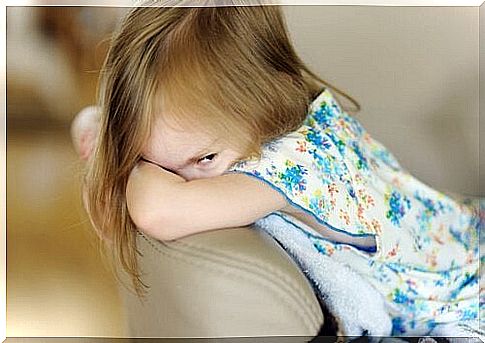Psychopathy In Children: Symptoms, Causes And Treatment

Psychopathy in children is a condition worth talking about. In particular, it concerns a high degree of destruction, a high dose of aggressiveness and a harmful element for society.
We believe it is important to study the adult manifestations of psychopathy, as well as how they develop in a person over time.
There are two things we want to emphasize. First of all, we live in a society with increasing violence rates. Second, people start committing violent crimes at a younger age.
What are some of the reasons behind psychopathy in children?
We still don’t know what causes psychopathy. However, there are some theories and hypotheses about this that we would like to share. They explain some of the causes but certainly not all.

There are biological theories that point to the role of hormones, such as testosterone, or abnormalities in brain structure. On the other hand, the learning theories show us the consequences of a violent upbringing.
Social theories point to social change with loose ethical and moral principles that could explain why psychopathic disorders are on the rise.
The most relevant theories today are the interaction theories . Indeed, these theories indicate that biological and genetic factors play a role in psychopaths’ anomalies related to their inability to feel empathy or other emotions.
However, with regard to psychopathy in children, we should also pay attention to educational factors. Social factors and the actions of parents can influence children’s behavior. The child’s environment can also influence them in such a way that they turn into criminals or even become serial killers.
Essential Characteristics of a Psychopathic Personality
Robert D. Hare described the essential characteristics of the psychopathic personality in 2003:
- A superficial and simple mind : psychopaths act alone and pretend.
- Self-centered and arrogant : Psychopaths are very narcissistic people. They therefore only think of their own well-being and the satisfaction of their needs. They also do not follow social norms. Instead, they just follow their own standards and impulses.
Selfishness can be present in any child depending on their age. However, over time as a child gets older and matures, it will disappear or adjust to normal levels.
Children who develop a psychopathic personality will exhibit persistent selfishness. In addition, they usually demand things from others in a very stubborn way. This makes them intimidating leaders of their groups or companions. This gets worse as they get older.
- Lack of Regret or Guilt : They have no problem causing harm to others. In other words, they are capable of great destruction and incapable of feeling regret or guilt. The lack of remorse is particularly related to their infamous ability to justify their behavior. So they avoid accepting responsibility for their actions.
- Lack of Empathy : All of these characteristics stem from their lack of empathy. They are not skilled or interested in understanding the emotions of others. They show a general lack of empathy, which is why it is difficult or impossible for them to have authentic emotional bonds.
- They are manipulators or liars : psychopaths are stubborn. Even if you catch them in a lie, they won’t stop lying. Worse still, they are going to keep changing their story, creating a complex web of lies and contradictions.

Treatment of psychopathy in children
Childhood psychopathy can make children lie from a young age. Their first victims are usually their parents, brothers or friends.
They learn to control their anger under certain circumstances, but eventually they become unable to do so. This can make it possible for parents to discover their strange personalities early on.
Psychopathy is a personality disorder and therefore there are only a limited number of possible treatments. So we should not have too high expectations.
We are unlikely to be able to turn our child into an honest or loyal person. In fact, they very rarely go to lose their psychopathic qualities. We can only try to manage them in moderation.
However, there are two important aspects that we need to consider in order to understand their problem. First, we need to look at the child’s environment.
Second, the age at which the parents or caregivers diagnose the problem is really important. Early detection and treatment before the child is eight or nine years old can greatly increase the chances of success.









